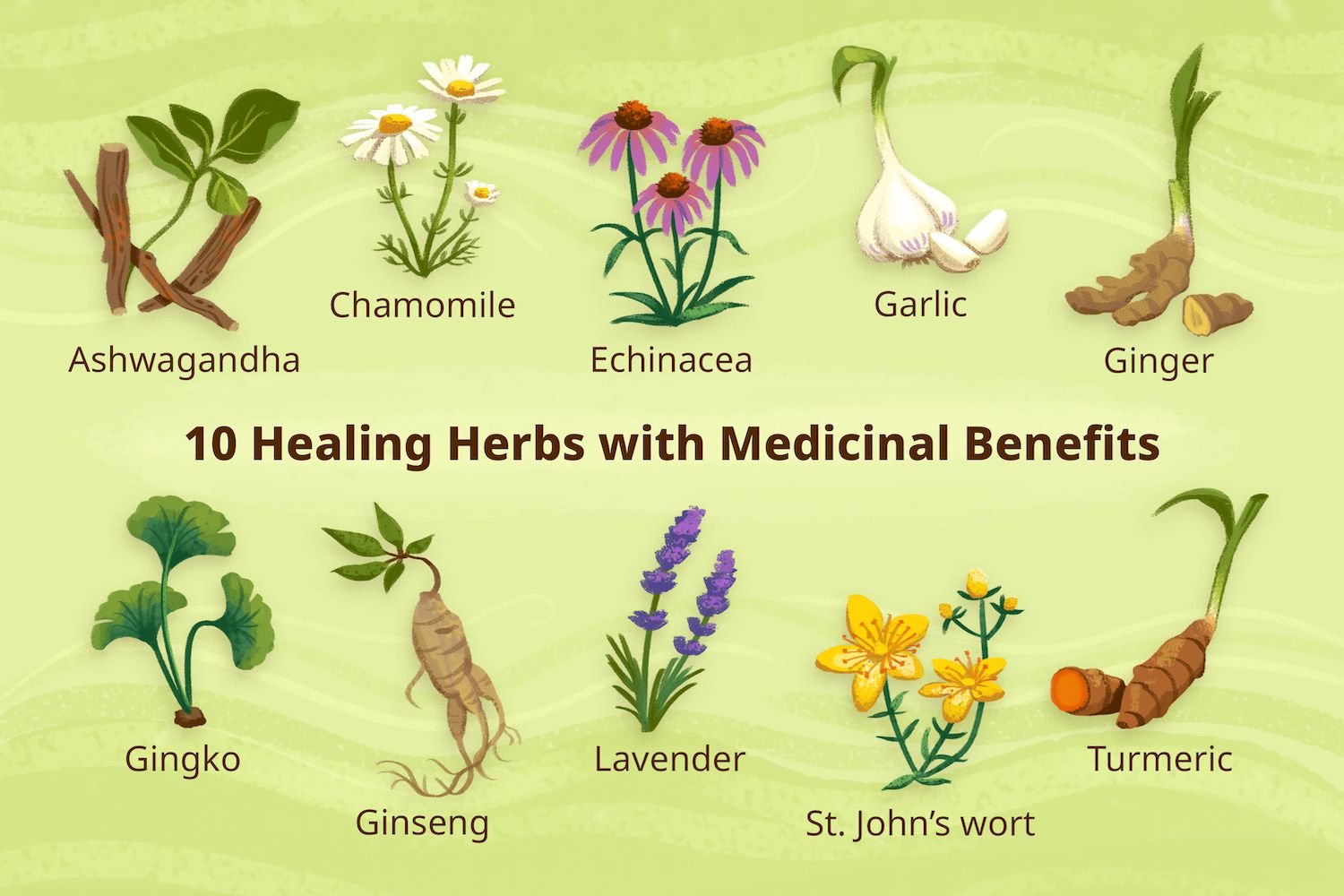Top 10 Medicinal Plants and Their Health Benefits
Medicinal plants have been used for centuries to treat a variety of ailments and improve overall health. From reducing inflammation to boosting immunity, these plants offer natural remedies with powerful health benefits. Here’s a look at the top 10 medicinal plants and the incredible ways they can enhance your well-being.
1. Echinacea
Health Benefits:
Echinacea is commonly used to strengthen the immune system and reduce the duration of colds. This powerful herb contains compounds that may help stimulate the production of white blood cells, which are crucial in fighting infections.
- Uses: Echinacea is often used to prevent or treat colds, flu, and upper respiratory infections. It may also reduce inflammation and support wound healing.
2. Turmeric
Health Benefits:
Turmeric is best known for its active compound, curcumin, which has powerful anti-inflammatory and antioxidant properties. It may help reduce the risk of chronic diseases like heart disease, diabetes, and cancer.
- Uses: Turmeric is commonly used for joint pain relief, digestive health, and promoting skin health. It’s also beneficial for improving brain function and lowering the risk of Alzheimer’s disease.
3. Ginger
Health Benefits:
Ginger is known for its ability to ease nausea, improve digestion, and reduce inflammation. It contains bioactive compounds that help with pain relief, particularly in cases of osteoarthritis.
- Uses: Ginger is commonly used to treat motion sickness, reduce nausea, and soothe an upset stomach. It’s also helpful for relieving muscle pain and joint stiffness.

4. Lavender
Health Benefits:
Lavender is known for its calming and relaxing properties. It has been shown to reduce anxiety, improve sleep, and promote relaxation.
- Uses: Lavender is often used in aromatherapy for stress relief and to promote better sleep. It can also help with headaches, digestive issues, and skin irritations when applied topically.
5. Peppermint
Health Benefits:
Peppermint is a versatile herb with numerous health benefits. It’s often used to relieve digestive issues such as bloating, indigestion, and irritable bowel syndrome (IBS). It also has cooling and soothing properties that help with headaches and muscle pain.
- Uses: Peppermint oil is commonly used to relieve headaches, improve digestion, and reduce nausea. It’s also effective in easing muscle pain and improving respiratory function.
6. Aloe Vera
Health Benefits:
Aloe vera is widely known for its soothing effects on the skin, particularly for burns and cuts. It also offers digestive benefits by promoting gut health and soothing stomach inflammation.
- Uses: Aloe vera is most commonly used to treat sunburns and skin irritations. It can also be consumed in juice form to aid digestion and promote detoxification.
7. Garlic
Health Benefits:
Garlic is a powerhouse herb that has been shown to lower blood pressure, reduce cholesterol levels, and enhance immune function. It’s rich in sulfur compounds that have antibacterial, antiviral, and antifungal properties.
- Uses: Garlic is commonly used to promote heart health, boost the immune system, and reduce the risk of infections. It’s also helpful for detoxifying the body and improving respiratory health.
8. Ashwagandha
Health Benefits:
Ashwagandha is an adaptogenic herb that helps the body adapt to stress and balance hormones. It has been shown to reduce anxiety, improve sleep, and boost energy levels.
- Uses: Ashwagandha is often used to improve mental clarity, reduce stress, and support adrenal health. It can also help with muscle recovery and improve overall vitality.
9. Chamomile
Health Benefits:
Chamomile is well-known for its calming effects and is commonly used to treat anxiety and insomnia. It also has mild anti-inflammatory and antioxidant properties.
- Uses: Chamomile is typically consumed as a tea to promote relaxation, improve sleep quality, and soothe digestive issues. It can also be used topically to relieve skin irritation and minor wounds.
10. Ginseng
Health Benefits:
Ginseng is a well-known herb that promotes overall vitality, boosts energy, and enhances cognitive function. It’s also been shown to help regulate blood sugar levels and improve immune function.
- Uses: Ginseng is often used to fight fatigue, improve mental clarity, and support cardiovascular health. It can also enhance sexual health and help with stress management.
Conclusion
These top 10 medicinal plants offer a wealth of health benefits that can support your overall well-being. From immune-boosting herbs like Echinacea and garlic to stress-relieving plants like lavender and chamomile, incorporating these natural remedies into your daily routine can improve both physical and mental health. Always consult with a healthcare provider before starting any herbal regimen, especially if you are pregnant, nursing, or taking medications.



